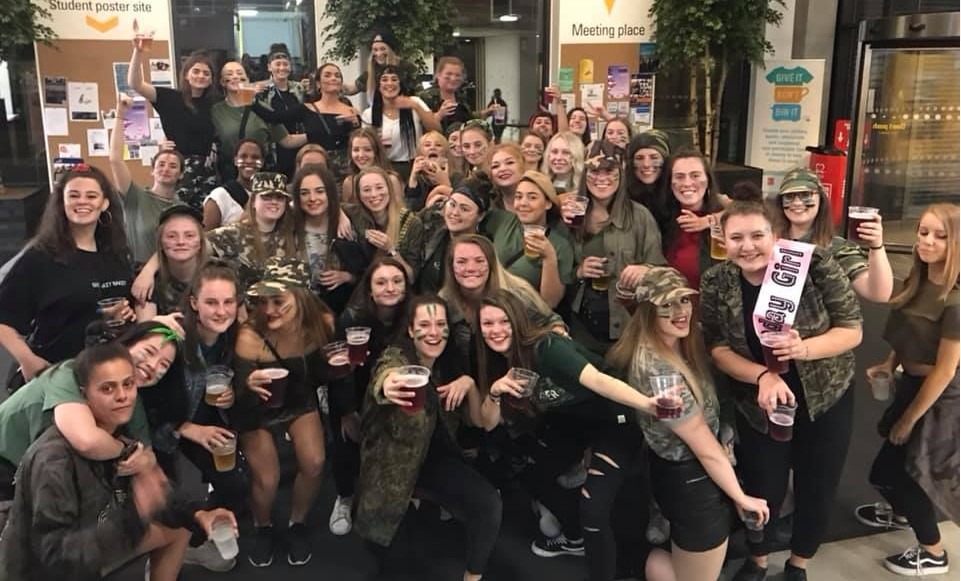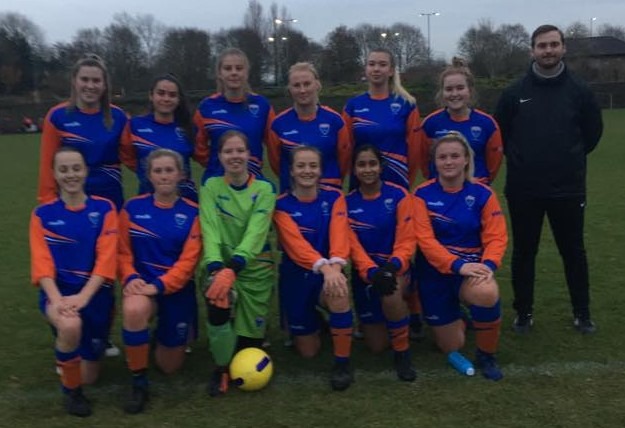These are all the questions asked during our webinar. To find something more easily, try pressing ‘ctrl’ and ‘f’ on your keyboard then typing a keyword.
Can I watch the Webinar again?
You can see the webinar we did on Friday 3rd April at 2:00pm below.
If that doesn’t work click this link.
You can see the webinar we did on Friday 3rd April at 4:00pm below.
If that doesn’t work click this link.
Where can I see/test these features out?
You can try out the task management on our demo site.
Use the login details:
Email = info@teamkinetic.co.uk
Password = password
You can view and download the volunteer app here.
Use the login details:
Email = kangarolf@yahoo.co.uk
Password = password
Is this free to organisations/groups?
We are offering TeamKinetic Advanced for free to community groups for 3 months during this crisis. More formal organisations such as volunteer centres can access special pricing on our Enterprise addition if required. To get started, go to our website.
Do the mutual aid groups count as small community groups?
Yes, though if they require our enterprise edition there may be a small fee.
How do I switch these new features on?
Watch this short video that shows you how to set this up on your system.
Can we import existing volunteers via CSV or from another system?
There is no automatic way to import volunteer details, although it is possible, there would be a charge incurred for migrating the data. Alternatively, you can INVITE them via a CSV file and the system will track if they sign up.
This is often better as the information is up to date and you will know that you have captured all the relevant information. (When you migrate data there are often gaps in the information where we now require information that was not captured in the first instance.)
Is this all GDPR compliant?
Privacy by design is central to our development process. The new features comply with GDPR and you remain the data controller for your data.
On the front page, instead of using the words ‘volunteering operations’, why not ‘volunteer tasks’ since the app is called a task?
You will see in the latest version, once you switch on these features you have a box for ‘Tasks’.
Will existing volunteers have to register again as COVID-19 volunteers?
No, but you may have some new processes that they need to complete before you allow them to be a COVID-19 volunteer (e.g. upload their ID).
Do all existing volunteers get to see these opportunities?
All existing volunteers that have access granted to your current application (i.e. they have been cleared after registering) can access the new COVID application.
They will see opportunities whose criteria they meet (criminal check required, etc.) in distance order from either their current location (if given) or from the location entered in their profile.
They will only be able to see these new tasks via the COVID app, they are not visible on your main website.
Can we have custom fields?
You can not currently add custom fields to TASKS, but this may be something we explore in future development.
Can the text on the landing page be made clearer? People have ‘registered’ and assumed they are volunteering. But they have not joined/ applied for an opportunity.
We will look at the wording on the landing page.
We strongly encourage you to look at your current post-registration email and make sure you are being very explicit about what you want your new volunteer to do next.
We also know that some organisations have had some very good results by emailing all volunteers who have registered but not as yet gone on to join a volunteer opportunity. Hit those volunteers with some
direct messages via email and SMS text explicitly telling them to sign up for a task or an opportunity. To do this watch the video below.
Is this standalone or can it be linked to an opportunity already in existence?
‘Tasks’ are standalone right now, this was done for speed of development and the unique situation this crisis presents. Looking to the future this will be something we will be looking to integrate into the normal TeamKinetic App.
Can you set age limits on tasks?
No.
Does it automatically add the volunteer hours and feedback?
Not currently, as these opportunities don’t necessarily convert very well to an hours metric. Though we will explore some other methods for tracking these Tasks.
In the ‘Search Volunteers’ filters, how do I filter volunteers I have already emailed?
You cannot directly search by volunteers you have never emailed. It is possible though to filter by those volunteers that have not joined an opportunity and/or that registered before or after a set date. So you can
every month use the NUMBER OPPORTUNITIES JOINED in conjunction with the REGISTRATION DATE to select everyone in that month that has registered but not joined an opportunity and email them.
Does it use ‘Push Notifications’ via the app or are volunteers updated by email?
Not currently Push Notifications, but it is on our roadmap. Volunteers can be contacted by email and SMS text and via the chat function within Tasks. Push notifications are difficult to set up and are not consistent between iOS and Android. We will be looking at adding in-app notifications in the short to medium term.
Is there a safeguard in place in relation to the number of hours a task has been assigned before it’s completed?
The age of the Task is displayed in hours and days on the Task details. There are no reports or warnings yet around tasks that are beyond their target date by a given interval. They will, however, always appear at the bottom of the unassigned list.
Some of the referrals we’re getting through may be urgent in nature, is there a RAG rating on the tasks?
We don’t have a RAG (traffic light) rating on tasks. You could use words like urgent in the title for now.
When we have tried this in the past we find the system quickly becomes diluted as provider, given the choice, selects urgent!
Can you request certain volunteers do certain roles, i.e. if they are in Aldi already getting the volunteer to pick up multiple shops at the same time?
Volunteers can be assigned multiple Tasks by an Admin or a Provider user or they can also self-assign multiple tasks. So they could join multiple tasks which involve picking up food allowing them to complete multiple tasks in one shop.
Is there a place where people can record money changing hands?
As you can imagine, money is involved, there are significant risk factors to take into account, so it is not the type of feature we would want to rush, but it is something that we will look to tackle in the next few weeks.
Can we upload photos of shopping receipts?
This is a great idea for a feature and we will add it to the road map.
Is there a diary linked to this?
Not currently, though we have taken note of this and will be looking at different user interface options as we continue the development of the application.
Is there a word count on the notes area for example, where shopping lists are very long?
The word count will be sufficiently large to allow quite detailed notes. If you find it is insufficient please raise a support ticket and we will look at extending this.
Who will be putting the information on? Is it Volunteer Centre staff?
We envisage Tasks being added by both Admin users and Providers depending on the organisation, but mainly providers.
Who are the ‘Providers’?
A provider is someone/an organisation who advertises a volunteering opportunity.
Does it connect into local voluntary and community groups who are coordinating various volunteer activities?
Yes, this new TASK functionality will allow these community groups to register as a provider and manage their volunteers via your system.
Who can add tasks – any provider? Approved providers?
Admins can either allow ALL providers, only TRUSTED PROVIDERS, or SPECIFIC (handpicked) providers to add tasks.
Can we hide the ‘community tasks’ from some providers?
Yes.
How will it be coordinated with Local Authority contact centres?
We know the landscape varies across the country, so we are trying to build these features to be as flexible as possible. We have examples of the Task system linked to other systems within the council and examples of council staff being established as providers so they can add Tasks directly or via some sort of upload function.
Some centres are not managing volunteers directly, such as PAVS. But we see that this might work for our providers, it would be useful if a little “how-to?” could be produced for us to disseminate to the groups.
Watch this short video and feel free to share this with all your providers using the link: https://teamkinetic.fleeq.io/l/pgbsc87ymu-29lkrp5kir
I think this would work for mutual aid groups, but it’s not our job at VC to do this – I think this is functionality for providers not for us. Mutual Aid groups in Gwynedd have already got systems set up – I don’t think they would move over onto a completely new system now.
We are not forcing anyone to use this system and appreciate you may have a solution that is working locally. As mentioned there may be the ability to link alternative systems together as we are doing in Greenwich, but this will involve a cost and some additional work.
The functionality is mainly aimed at providers, and specifically, community volunteer coordinators who don’t have access to tools to manage their volunteers.
Who actually checks the volunteers? Is it us Admins within the volunteer centres that approves the volunteer?
The on-boarding of the volunteers remains the same with regards to TeamKinetic. The volunteers still register the same way they did previously, you may decide locally that your process has to change to deal with the particular issues of this situation. But there are ‘flags’ against each volunteer to be ‘Cleared’, ‘Inducted’, ‘Criminal Check’, and ‘ID Verified’ which can all impact volunteers’ access to tasks. So if you specify that a task requires volunteers to have shown their ID, then it will only allow these volunteers to join the task.
What is being done around volunteer identification?
We have included the ability to mark a volunteer as having ID, and restrict tasks to ONLY volunteers who are marked as having submitted their ID.
If the volunteer isn’t assigned to a group/provider, who validates them and checks them?
Volunteers will appear to the Admin as they have previously, waiting to be cleared. You may wish to enforce additional checks or required documents such as picture ID or proof of a criminal record check. You may also wish for the volunteers to include a picture of themselves for example, which can be locked so they can’t change it after it’s been checked. These features can all be enforced via the Super Admin area.
Some customers are using text messages, requesting the volunteer upload the appropriate ID documents. They have set up a template text message that they send to the volunteer once they have agreed to do a task which has our organisation name and phone number on so that they can upload the appropriate documents.
Most of our existing volunteers don’t have ID on the system. Does the system stop them taking a task if they haven’t proved their ID on the system?
We have added a new flag for volunteers so admins can start to mark volunteers having provided ID. We will be adding this flag as a filter to the tasks presently. It will be a decision for each organisation if they want to go back and historically flag volunteers and use the ID restriction on tasks. We will be able to help with identifying volunteers with uploads, please get in touch via support ticket.
The lock feature you mentioned available on Downloadable Documents is not available on my system? I am a superuser and have been using Downloadable Documents all week.
Downloadable documents are different from the documents that are uploaded to a volunteers profile. Downloadable documents by their nature cannot be affected by a volunteer. It is possible however to upload a document to a VOLUNTEER’s profile and disable the volunteer from being able to remove it.
Locking documents is covered in the ‘Adding Volunteer Documents’ video above.
How do you record who has DBS checks?
These checks are recorded in the same way as previously in TeamKinetic. Here is a short video on how you can do this.
DBS can only be added by an Admin user. These details are visible to providers via the volunteer profile.
How will Providers know if the volunteer needs to have had a DBS check? How will you be able to check that the volunteer has really had that?
Criminal records checks can be recorded in TeamKinetic by Admin users only. Tasks and Opportunities can be limited to those volunteers that have a valid check in the system.
There is a tool on the DBS website that can help providers and admins determine whether a DBS is needed – https://www.gov.uk/find-out-dbs-check
This will depend on some extent to some support and training from the Admin users for the Providers.
I thought the DBS/criminal record check function was turned off for Volunteering-Wales.net?
The criminal check sections of a volunteer’s profile are always available. So you can always record a criminal check against a volunteer. There is also a super admin switch (which is currently switched off for Wales) that controls if the criminal check restriction is available when creating new opportunities.
It was switched off for PROVIDERS as many providers were saying that the opportunity required a Criminal Check, but the volunteer couldn’t join the opportunity as they didn’t have a criminal check against them in the system. But it is always available for administrators to add a criminal check to volunteers.
One of the issues is around managing these tasks. Many volunteers are doing these tasks on an ongoing basis and will agree with an individual as and when they’re required to go shopping.
How will this work with the app?
We are already working on a solution to this issue, with tasks that are ongoing and require more than one volunteer and we expect to see those functions soon. We are looking into FOLLOWING A PROVIDER which could send an email to volunteers who are FOLLOWING, to inform them that they have recently added a task.
Is there an option to confirm ‘task completed’ and all satisfied?
Yes, see the short video below.
If new volunteers sign up for a task, how can providers provide them with code of practice/ safeguarding info appropriate to the task?
Can we build in Volunteer training/ guidelines as they sign up?
You can continue to use the Document Hub in the Super Admin area for both Volunteer and Providers, see the video below to see how you add documents.
Further Guidance from WCVA will be shared with our Welsh customers as it becomes available.
Can you assign tasks directly to someone who has not applied? I already have people on a waiting list?
Yes, below is a quick tutorial – how to assign a volunteer to a task.
How does the volunteer join their local support team (community group) on the site?
Can our ‘Street Champion’ role only be open to volunteers accepted on that opportunity?
Right now that is not possible, but we are exploring the ability to be ‘linked’ to a provider for a future update. So a provider may have a group of local volunteers that they know and want only to engage with rather than other volunteers from the system, that they may not know.
Please can we as admins have the function to authorise these tasks? We don’t want volunteers taken advantage of and we don’t want the private data being passed into the wrong hands.
We are trying to add a pre-approval process by admins for all provider created tasks. We will endeavour to have this ready for release or soon after. You will always be able to DELETE unsuitable tasks until we can complete this change. It is a balancing act between not requiring administrators to get involved with every task transaction, but giving them enough control to be able to identify tasks that should be removed.
Can individuals register their requests for support (for example shopping requests)? Or the group admin has to record these individual requests of the system?
The admin or Provider can add tasks. At the moment if a person requires support they could either register as a Provider or contact an existing Provider or administrator so the task can be added to the system on their behalf.
This task app may work well if you add an ‘Ask’ session where the public can ask for support, then we can create a task from their ask… is this possible? we have people contacting to inform us about needs in the community for example.
It’s a great idea and one we will look at if people think there is an appetite for this.
How soon will the ID function be available? Can any individual that registers on the site print out a volunteer ID? Are we assuming that everyone will be a safe volunteer?
On the ID function and approval of it. WCVA is discussing at a Wales-wide level to get Police others buying in and support for the approach. We will update all hopefully next week on how those conversations have gone and how this feature may develop based on what the police state they require.
When we set up a task, can that task be saved as a template task so we can use it quickly to set up the next task? E.g. automatic upload of saved or previously typed words/data.
Not at the moment, there is only one field (Task Title) which may be a similar form task to task, and we have already added an auto-suggest functionality to this field. The other fields will be different from task to task (e.g. recipients address, or shopping list).
We will also explore CSV uploads and an API link where appropriate with clients to do so.
Can you download the documents uploaded by Volunteers in CPD & Documents area? We’re considering the most secure way to share images of say DBS checks with providers.
Yes, you can upload and download copies of documents. Though sharing Criminal Records Check information may have significant GDPR considerations as this is sensitive data. It would be our suggestion that you share the DBS number and direct your providers where necessary to check those numbers on the DBS website. Alternatively, you can check the number for them on the DBS site.
Is this new section of Volunteering Wales bilingual?
We will be working towards a bi-lingual interface, but initially, we will develop the English version as we know speed is paramount at this time, once we have an interface that is relatively stable we will look to add the Welsh language elements.
Are you going to have a limit on how far a volunteer can travel to apply for a volunteering role?
Opportunities are filtered initially by proximity and it is the assumption that people will be looking to help out near home. We have no intention of adding an arbitrary distance currently but if this becomes an issue we will be happy to revisit.
Is there a report built that shows things such as average time for completion, etc?
There is little reporting right now, but this is something we are aware of and will be thinking a little more about as we get more data.
The tasks need to clearly state who the provider is.
We are open to this type of feedback and we will see what we are able to do, to improve the user experience.
Does this mean that ‘Informal Groups’ COVID-19 Neighbourhood and Mutual Aid Groups are now able to register themselves as Providers, not just the usual formal (registered charities/Groups etc)?
Our usual minimum requirement to register a provider is a volunteering policy and insurance. Which may not be appropriate for those small groups, as we don’t know most of these groups how do we know they are legitimate?
If you know the people running these opportunities and Tasks then they are probably ok to be approved. Most are well-known people in communities and local councillors. It is open to local discretion.
Could the informal groups be registered as COVID-19 providers and keep them away from the main section of the site? Maybe only COVID-19 providers should be able to see COVID-19 tasks.
This is not currently available but is certainly something that could be considered in a future update. We will add it to our development road map.
Once a volunteer selects the task, is it no longer open to others, i.e. can more than one volunteer select one task giving the provider a choice of who’s best suited?
Not currently, but it has been talked about for a later version of the app.
If there is something already in use in a county can the function be turned off so volunteers aren’t trying to sign up to tasks that won’t exist?
Yes, this is an optional feature set that can be switched on and off as required by the Admin. You can see a short video on how to do that below. We are also allowing you to use these features on a provider by provider basis.
Do you have any publicity that would help us with promoting this new function, please? Coming from WCVA/WG seems to help us locally and is seen as more ‘official’.
We are working with the Welsh Government and other partners on this.
How are you going about promoting it to the community groups?
We need your help, please feel free to share TeamKinetic with other organisations or community groups you think might benefit.
What is the URL for the TeamKinetic blog? Will the comments be available on the blog as well?
Yes, and now you’ve reached the end of our FAQ section! Feel free to browse our other blogs by clicking here, or visit our website.
Still Have Questions?
Send us your questions via Facebook, Twitter, LinkedIn, or on the YouTube videos at the top of this blog post. We’ll try and respond ASAP and we’ll add them to this post or everyone else to see!
You can also call us on 0161 914 5757 or email us at info@teamkinetic.co.uk.























